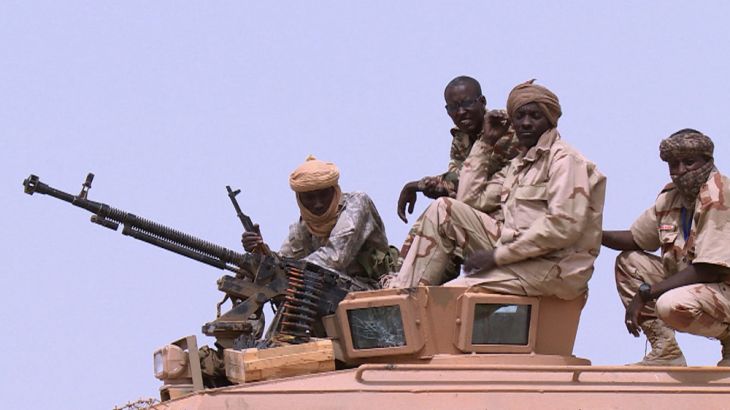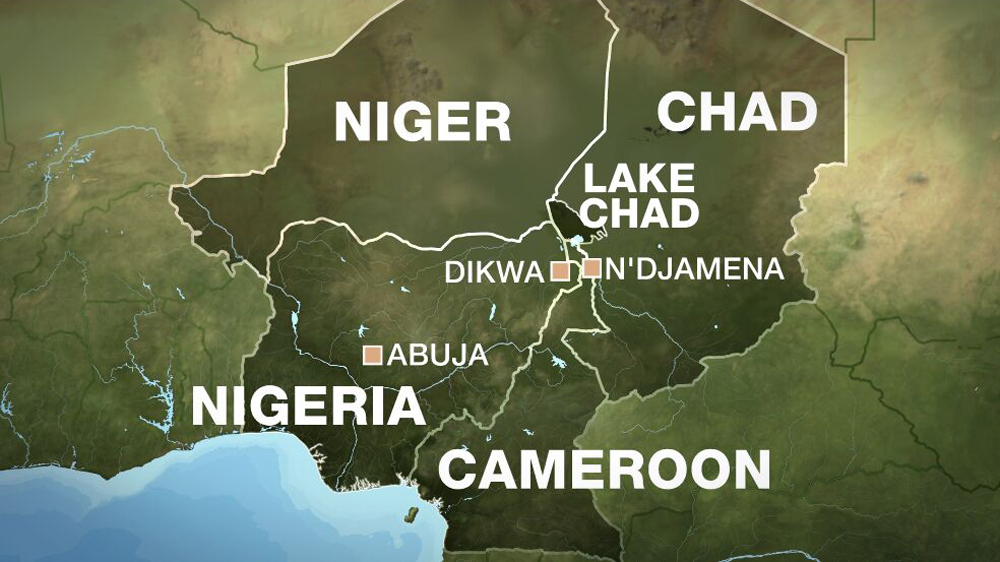
Chad: At War With Boko Haram
People & Power investigates how Chad is responding to the threat posed by Boko Haram across West Africa.
The Nigerian based Boko Haram insurgency has been plaguing the country since 2009, but last year the armed group dramatically stepped up its campaign of violence – capturing large areas of territory, displacing many tens of thousands of people, and killing 4,000 more, the vast majority of them civilians. By the beginning of 2015, the group had seized and taken control of several major towns in northern Nigeria and were seeking to extend their influence across West Africa by launching further attacks in neighbouring Niger, Cameroon and in and around Lake Chad, which adjoins the borders of the four nations.
In February, the governments of those four countries – Nigeria, Chad, Niger and Cameroon – responded by forming a military coalition to take on the insurgents. The charge would be led by Chad; its troops among Africa’s most battle hardened and feared. The central African nation committed 2,000 men to a proposed African Union force of around 8,000. Its aim: to smash Boko Haram and end a conflict that has caused the death of 13,000 people and made refugees out of 1.5 million more.

In March 2015, two French filmmakers, Charles Emptaz and Marine Courtade, joined a unit of Chadian troops as they flew into Boko Haram’s northern Nigerian heartland, where some of the fiercest fighting had been taking place. In the preceding weeks, the Chadian army had enjoyed a string of successes and had managed to push the rebels back, liberating key Nigerian towns in the process.
Keep reading
list of 4 itemsTen years after Chibok girls kidnapping: One woman’s struggle to move on
Ten years after ‘Bring Back Our Girls,’ Nigeria’s kidnappings continue
Why mass kidnappings still plague Nigeria a decade after Chibok abductions
In the face of this unexpected onslaught, Boko Haram’s response had been typically defiant. In a video released on the internet, the insurgency’s leader Abubakar Shekau publicly swore allegiance to the Islamic State in Iraq and the Levant (ISIL) and rebranded his organisation as the Islamic State’s West Africa Province – a direct challenge to the region’s established powers. He even had a personal message for Chad’s President, Idriss Deby: “You, Idriss Deby, the ‘King of Africa’, you’re too late! I dare you to attack me, I’m ready!”
Emptaz and Courtade arrived in Nigeria around the same time and were immediately whisked by the Chadian military (and by Colonel Azem, its enthusiastic media relations officer) to Dikwa, a town that had been at the epicentre of the fighting and which had only just been liberated. Soldiers proudly paraded the bodies of defeated militants killed less than 24 hours earlier and took the journalists to Boko Haram’s now trashed headquarters – a villa the militants had forcibly requisitioned from the area’s emir.
But the most macabre moment of the trip came when the filmmakers were ushered out to the courtyard and encouraged to point their cameras at a fatally wounded insurgent left lying in the dirt. The young man had not been treated and it was clear that to make some kind of revengeful point, he was merely being abandoned to die slowly and in agony – against all the supposed conventions of modern warfare. Certainly, when the filmmakers suggested he needed help, their protests were brushed aside.
![Violence and destruction has thrown thousands of refugees out of their homes and onto the roads [Al Jazeera]](/wp-content/uploads/2015/05/cef685e67fbc4415b6bbe5e1e33a39e9_18.jpeg)
Yet for all the brutality exhibited by the combatants towards each other in this conflict, it is the local civilian population who are probably suffering the most. Splitting off from their military minders, the filmmakers drove 350km towards the Lake Chad region and the town of Ngouboua, just across the border, inside Chadian territory. Boko Haram had crossed over from Nigeria and raided this community two weeks earlier – looting, burning property and killing seven local people.
Such attacks are frequent along this porous border and the violence and destruction has thrown thousands of refugees out of their homes and onto the roads. Ordinary life has become impossible. Since the beginning of this year over 25,000 people have left Nigeria and sought sanctuary in Chad.
Some are Nigerians fleeing the violence, others Chadians who had emigrated and are now returning to their place of birth, leaving behind their businesses and land in a bid to survive. All are desperately in need of aid, precious little of which is available.
While the increased presence of Chadian soldiers in their villages and towns over the past few months may have relieved some pressure on the local population, few are yet willing to believe that this brutal conflict is going to end any time soon. For the foreseeable future, it appears that ordinary civilians will continue to suffer and be driven from their homes.